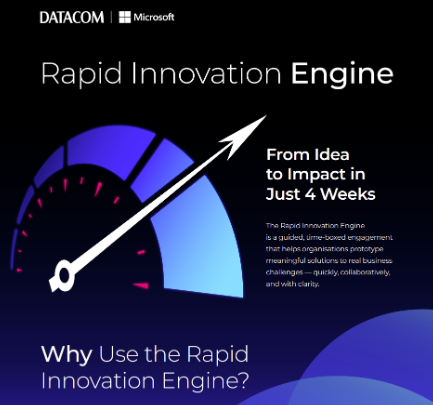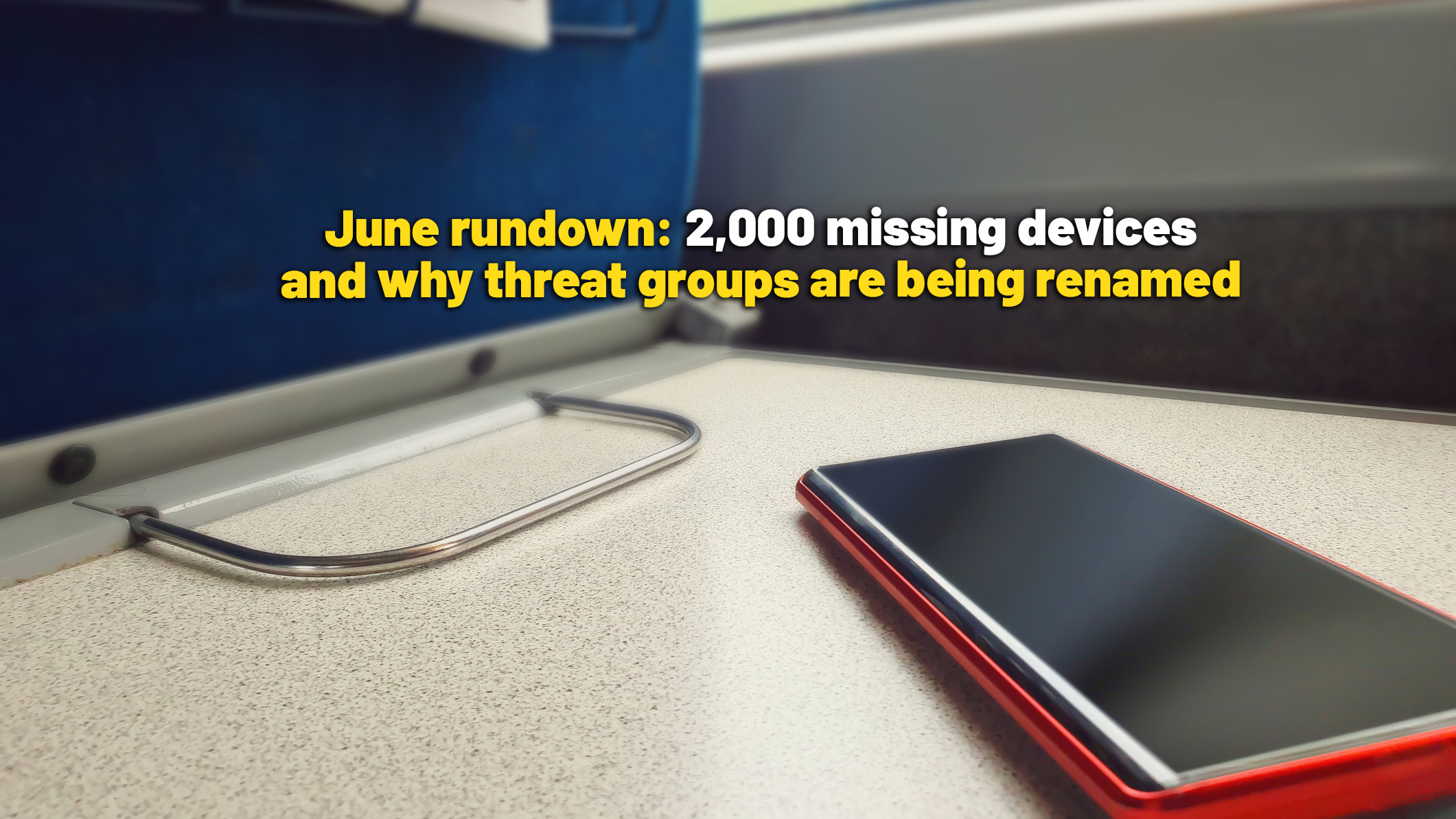"I LOVE this company!" Looking back on 50 years of tech giant Microsoft
There have been highs, lows, laughs and lots of success in the past 5 decades for the Redmond-headquartered firm
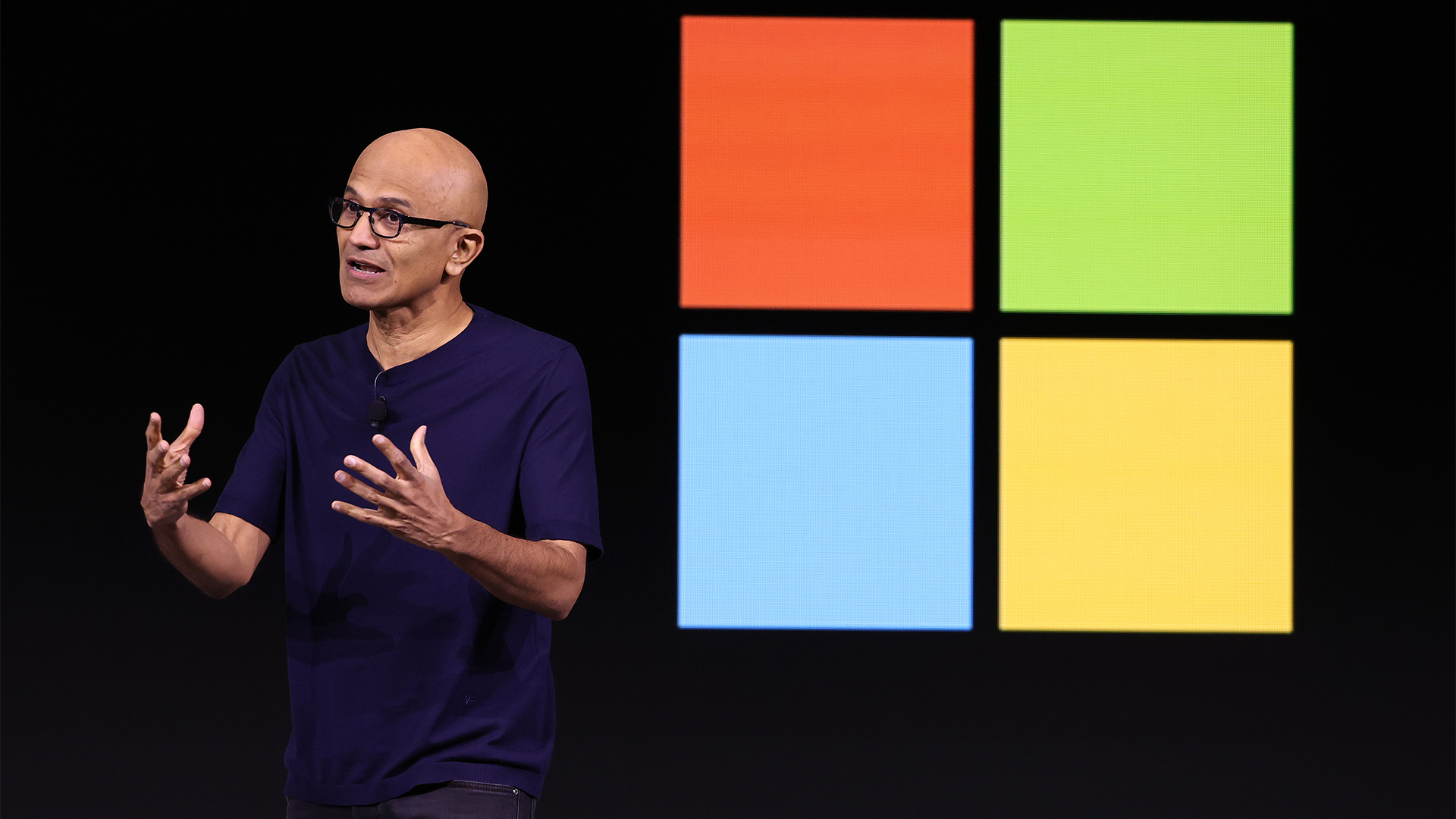

When you hear the phrase “Dance like nobody is watching…” what immediately springs to mind? Although it’s been reused many times in modern music, it’s believed that it originates from Mark Twain.
Regardless of its true origin, I always think back to some of my earliest memories. That of being in nursery school, hearing some music, and it just taking control of my body, causing me to sway my hips, wobble around, and generally enjoy myself.
It wasn’t just limited to being at nursery. Indeed, the need to move to the music knew no bounds. Anywhere and everywhere, there I would be like a snake being charmed. It did not matter who else was there, I did not care.
Excuse my preamble as I make my point. I am thrown back to that innocent time of toddler-dancing when I think about the launch event for Microsoft Windows 95. Bill Gates, Steve Ballmer and others took to the stage, dancing like no one was watching The Rolling Stones’ Start Me Up. Boy, what a party it was.
Those guys were having the time of their lives. Back in full-on toddler mode just enjoying a good dance to a great tune. That was back in 1995, and as we fast-forward to 2025, Microsoft itself is now 50 years old.
Age is but a number
We humans, as we grow older, become more self-aware and awkward and no longer allow ourselves that freedom to just move with the groove as if it is the only thing that matters and we are the only person in the room. We, generally speaking, become fairly inhibited.
Companies, however, (at least those that want to remain successful and thrive, not just survive) have to have a more open mindset and be prepared to evolve and try new things, pushing the envelope and innovating to differentiate themselves.
Sign up today and you will receive a free copy of our Future Focus 2025 report - the leading guidance on AI, cybersecurity and other IT challenges as per 700+ senior executives
Tech giant Microsoft is a good example of this. Founded in 1975 by friends since childhood, Bill Gates and Paul Allen, who wanted to turn their programming skills into a business endeavor.
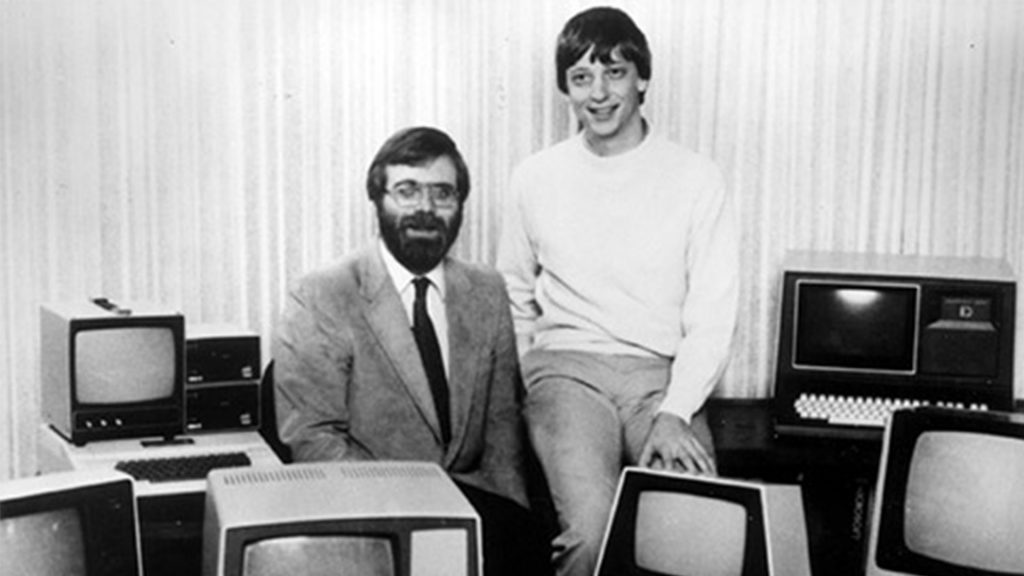
Allen and Gates back at the beginning
Their first commercial success was the Altair BASIC at which point the company’s suggested name was ‘Micro-Soft’ given its focus on software for micro computers. As we know, that evolved into Microsoft, with the company going public in 1986. It has been on quite a journey ever since.
While I may often feel as old as Microsoft is, I’m not quite there. Yet! That said, I can look back and remember the four key eras that the tech giant has been a big part of.
Bringing computing to the masses
It started with Microsoft Disk Operating System (MS-DOS) for x86-based PCs, but soon evolved into much, much more. The first version of Windows arrived on the scene in 1985, and the launch of Windows 3.0 felt like a massive step forward in 1990.
It was the creation of Windows 95 that was an even bigger step-change for all computer users. “We really want to thank our customers and partners for such great support over the last year,” Bill Gates, then chairman and CEO, said to mark the OS’ one-year anniversary.
“Windows 95 has helped millions of users get more out of personal computing, and we owe a big thank you to the entire PC community.”
Let’s also not forget the much-beloved Office, which powers the productivity of many businesses globally. Launched in 1990 with just three applications (Word, Excel, and PowerPoint) it was another pivotal moment for Microsoft and the industry alike.
The launch of Office XP and Windows XP in 2001 marked another key milestone for Microsoft and consumer and business users alike.
“These breakthrough versions of Windows and Office will give people the most powerful end-to-end computing experiences ever available,” Gates said at the time. “The coming generation of Windows XP and Office XP will enable customers to communicate and collaborate more effectively, be more creative and productive, and have more fun with technology.”
We then had WIndows 7, Windows 8.1, and Windows 10, which all brought new bells and whistles to the table. (You can see our head-to-head comparison of all three here)
That brings us to the modern day, where the story ends – at least for now – with Windows 11.
End-of-life support for ageing versions of the OS is well publicised and flagged far in advance, but still catches many organizations by surprise and becomes another headache for IT management to resolve.
Windows remains firmly in the top spot for OS use around the world, with almost 72% market share as of March 2025, according to StatCounter.
The gaming revolution
While not a solution to business problems, the launch of Xbox in 2001 was a big deal.
As well as offering something new and innovative for gamers, it also demonstrated Microsoft’s determination to enter new markets and take on established players.
“On Nov. 8, Xbox will hit the market and redefine how people think about and play video games,” Robbie Bach, chief Xbox officer at Microsoft said in a 2001 press release.
“Xbox is going to change video games the way MTV changed music. Your games are never going to be the same.”
A cloudy outlook
Windows Azure, launched 2008, was a key moment for Microsoft and developers.
“We have introduced a game-changing set of technologies that will bring new opportunities to Web developers and business developers alike. The Azure Services Platform, built from the ground up to be consistent with Microsoft’s commitment to openness and interoperability, promises to transform the way businesses operate and how consumers access their information and experience the Web,” Rat Ozzie, Microsoft’s chief software architect said at the firm’s Professional Developers Conference (PDC) in October 2008.
He added: “Most important, it gives our customers the power of choice to deploy applications in cloud-based Internet services or through on-premises servers, or to combine them in any way that makes the most sense for the needs of their business.”
The advent and mainstream take-up of cloud computing marked a new era for us all, both at home and work. It opened up the concept of more flexible approaches to where people work and changed cost dynamics completely.
Cloud today is a no-brainer and is a core tenet not just of digital transformation but of BAU operation for any modern business.
Office 365 was announced in October 2010 and really levelled the playing field in terms of business productivity.
“Office 365 is the best of everything we know about productivity, all in a single cloud service,” said Kurt DelBene, president of the Office Division at Microsoft.
“With Office 365, your local bakery can get enterprise-caliber software and services for the first time, while a multinational pharmaceutical company can reduce costs and more easily stay current with the latest innovations. People can focus on their business, while we and our partners take care of the technology.”
AI dominates
Tapping into the AI era, Copilot launched in 2023, and Microsoft later announced that 70% of Fortune 500 companies are using Microsoft 365 Copilot.
“Copilot combines the power of large language models with your data and apps to turn your words into the most powerful productivity tool on the planet,” said Jared Spataro, corporate vice president, Modern Work and Business Applications, Microsoft, back in March 2023.
“By grounding in your business content and context, Copilot delivers results that are relevant and actionable. It’s enterprise-ready, built on Microsoft’s comprehensive approach to security, compliance, privacy and responsible AI. Copilot marks a new era of computing that will fundamentally transform the way we work.”
In January 2025, the firm announced that AI investment was a big focus for its fiscal year.
In FY 2025, Microsoft is on track to invest approximately $80 billion to build out AI-enabled datacenters to train AI models and deploy AI and cloud-based applications around the world,” Brad Smith, Microsoft’s vice chair and president, wrote in a blog post.
“More than half of this total investment will be in the United States, reflecting our commitment to this country and our confidence in the American economy.”
Other eras
Microsoft has also had its fair share of acquisitions along the way. Some that stand out are Hotmail in 1997, Skype in 2011, Minecraft in 2014, LinkedIn in 2016, Nuance in 2022.
Each leadership change – from Gates to Ballmer to Nadella – has also ushered in new ways of thinking and doing things, some resulting in rave reviews and others leading to rants.
While there have been many hits, there have also been some misses along the way. Bing is unlikely to steal users away from other browsers, for example. And many will remember Tay and the antitrust sagas.
Although it’s fair to say that any firm that has longevity in this industry will make mistakes along the way, so in that sense Microsoft is in good company here. For me, the key thing is what they learn from the experience and what they do next/how they get back up rather than the fall itself.
Around half its lifetime ago, in a September 2000 event to celebrate Microsoft's 25th anniversary, then-CEO Steve Ballmer worked up quite a sweat, energetically bouncing around the stage shouting about how much he loved the company.
Apparently, when Steve left the business in 2014, he sent a company-wide email once again reiterating his love for Microsoft.
Looking forward
What’s in store for the next 50+ years, then? Quite a lot. Indeed, in writing this piece to mark the first 50 years, it became apparent that I couldn’t possibly fit everything in. These have certainly been a very busy five decades for the tech giant for sure.
One thing Microsoft has publicly stated and I absolutely agree with is the fact that partnerships with industry and government will remain key to its strategy and success. As such, we can expect to see more alliances, acquisitions, and innovation on the horizon.
While I have many more thoughts on what may come next, I feel it’s only right to also let Microsoft have its say on this one.
Current chairman and CEO, Satya Nadella, said: “I’ve found myself reflecting on how Microsoft has remained a consequential company decade after decade in an industry with no franchise value. And I realize that it’s because – time and time again, when paradigms have shifted – we have seized the opportunity to reinvent ourselves to stay relevant to our customers, our partners, and our employees. And that’s what we’re doing again today.”
Happy Birthday, Microsoft. Here’s to another 50 years!
Maggie has been a journalist since 1999, starting her career as an editorial assistant on then-weekly magazine Computing, before working her way up to senior reporter level. In 2006, just weeks before ITPro was launched, Maggie joined Dennis Publishing as a reporter. Having worked her way up to editor of ITPro, she was appointed group editor of CloudPro and ITPro in April 2012. She became the editorial director and took responsibility for ChannelPro, in 2016.
Her areas of particular interest, aside from cloud, include management and C-level issues, the business value of technology, green and environmental issues and careers to name but a few.
-
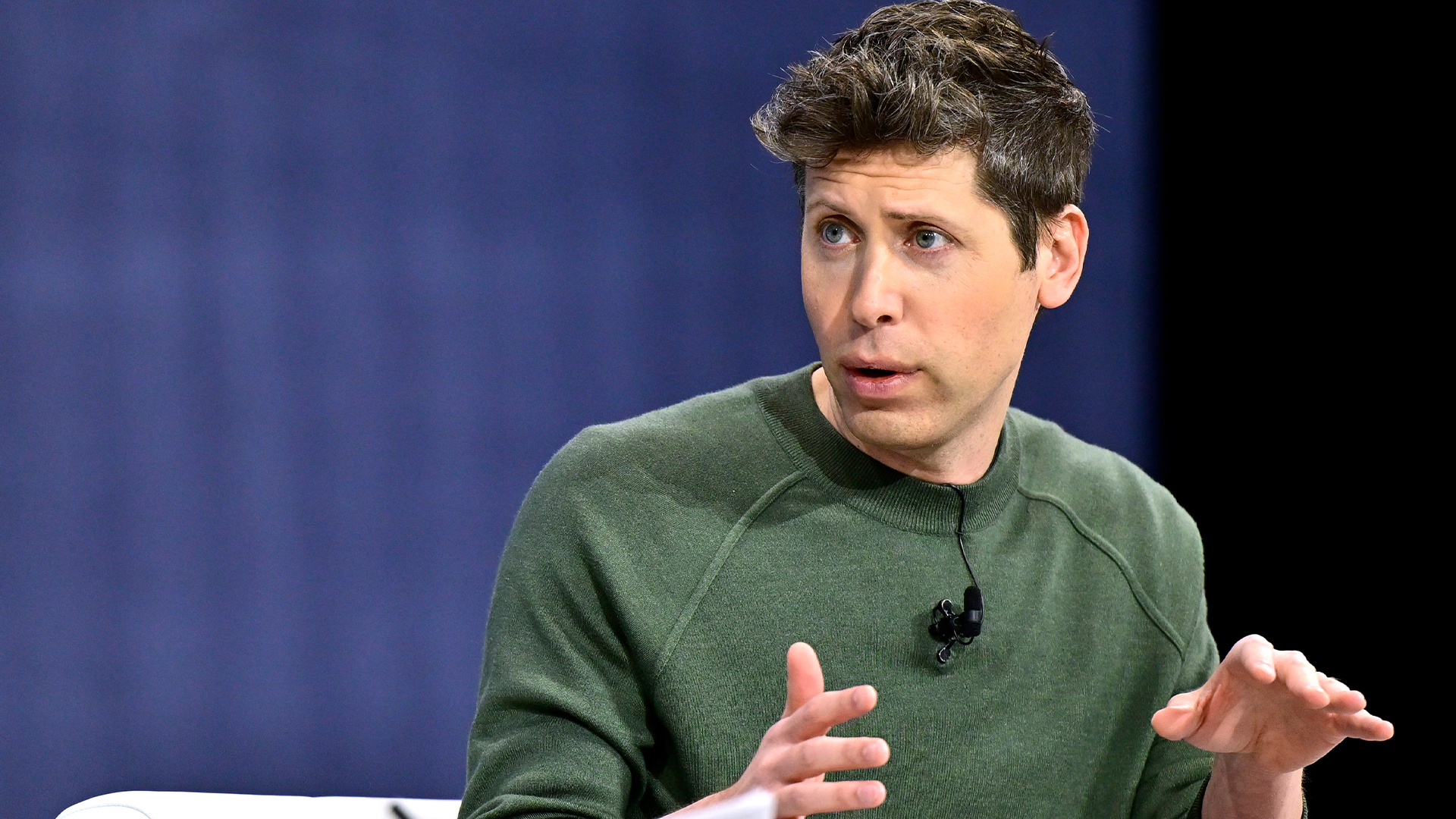 Report: OpenAI considered accusing Microsoft of anticompetitive behavior
Report: OpenAI considered accusing Microsoft of anticompetitive behaviorNews Negotiation tactics get tough between two previously tight partners, according to WSJ report
-
 Fresh Microsoft layoffs hit software engineering roles, documents show
Fresh Microsoft layoffs hit software engineering roles, documents showNews The latest batch of layoffs at Microsoft's Washington headquarters mark the second in the space of a month.
-
 Civil servants started using Microsoft Copilot to speed up admin tasks – here's what they found
Civil servants started using Microsoft Copilot to speed up admin tasks – here's what they foundNews Staff are using Microsoft Copilot to help draft documents and summarize meetings and emails
-
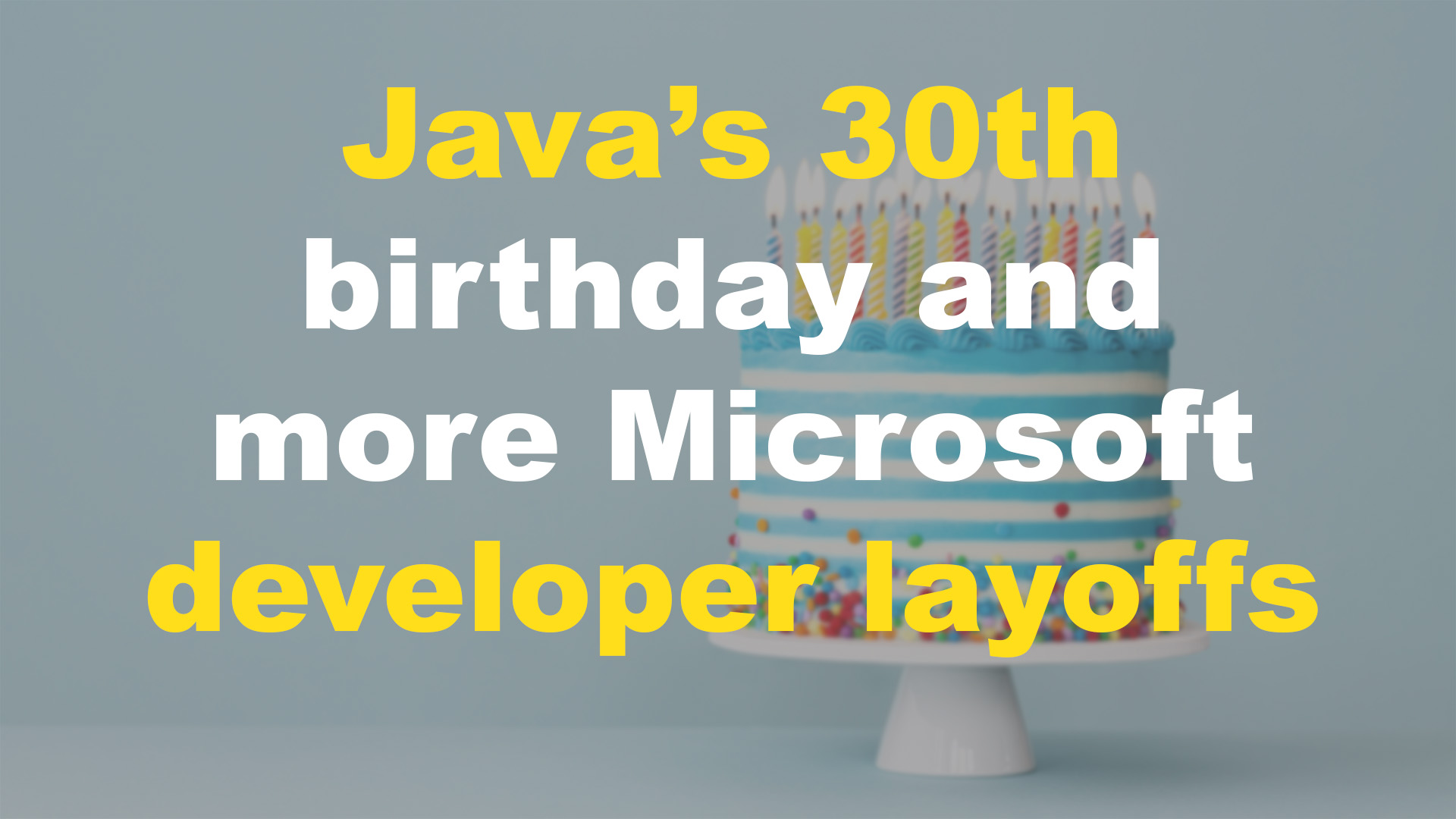 Java celebrates its 30th birthday and more Microsoft developer layoffs
Java celebrates its 30th birthday and more Microsoft developer layoffsITPro Podcast Is AI coming for everyone's job now? Plus Dragonforce emerges as the tool behind UK retail attacks
-
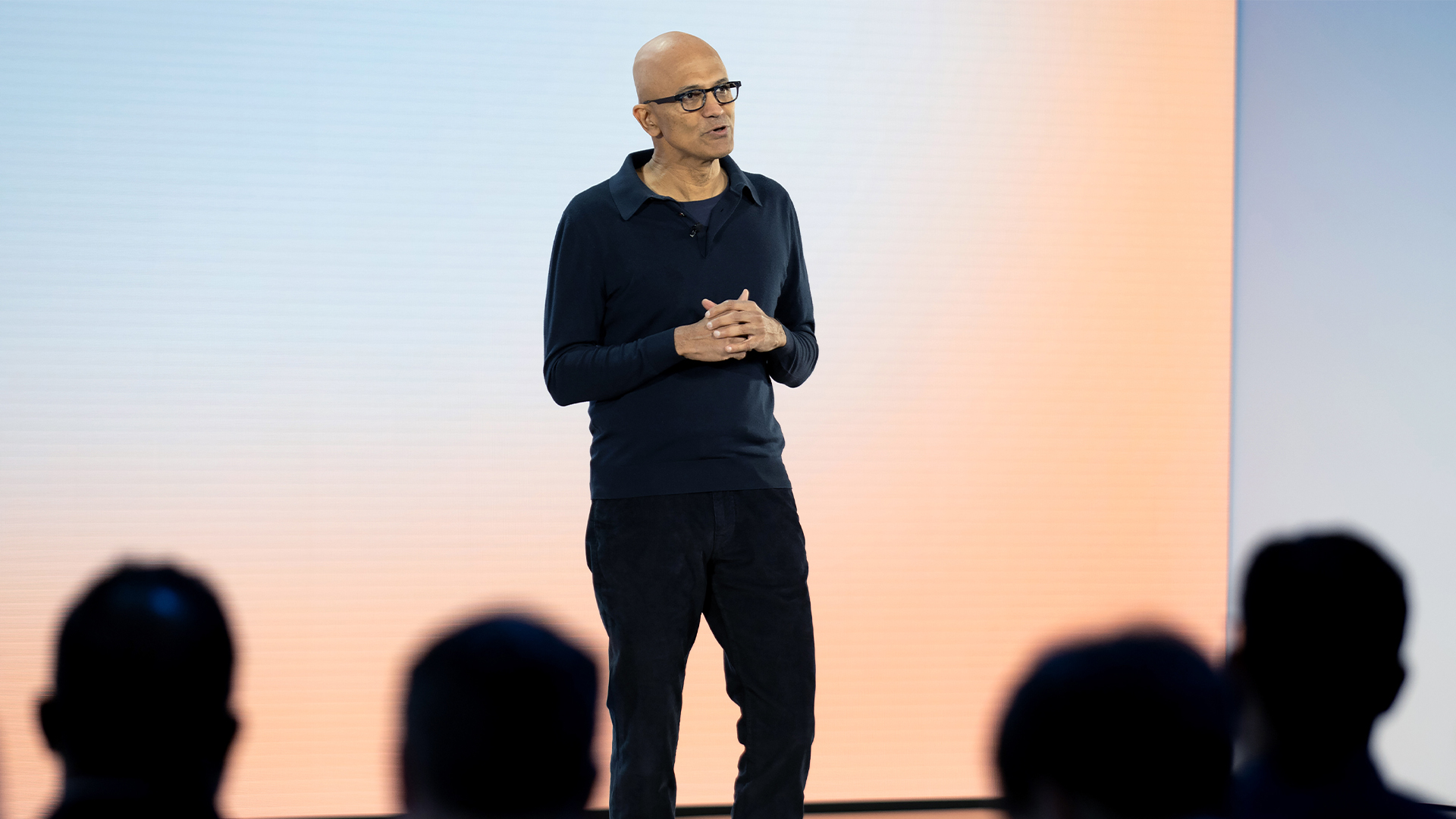 Microsoft workers face a fresh round of layoffs – here’s who could be impacted
Microsoft workers face a fresh round of layoffs – here’s who could be impactedNews Microsoft will cut 6% of its workforce, equivalent to around 6,000 workers, as part of its latest cost-cutting drive.
-
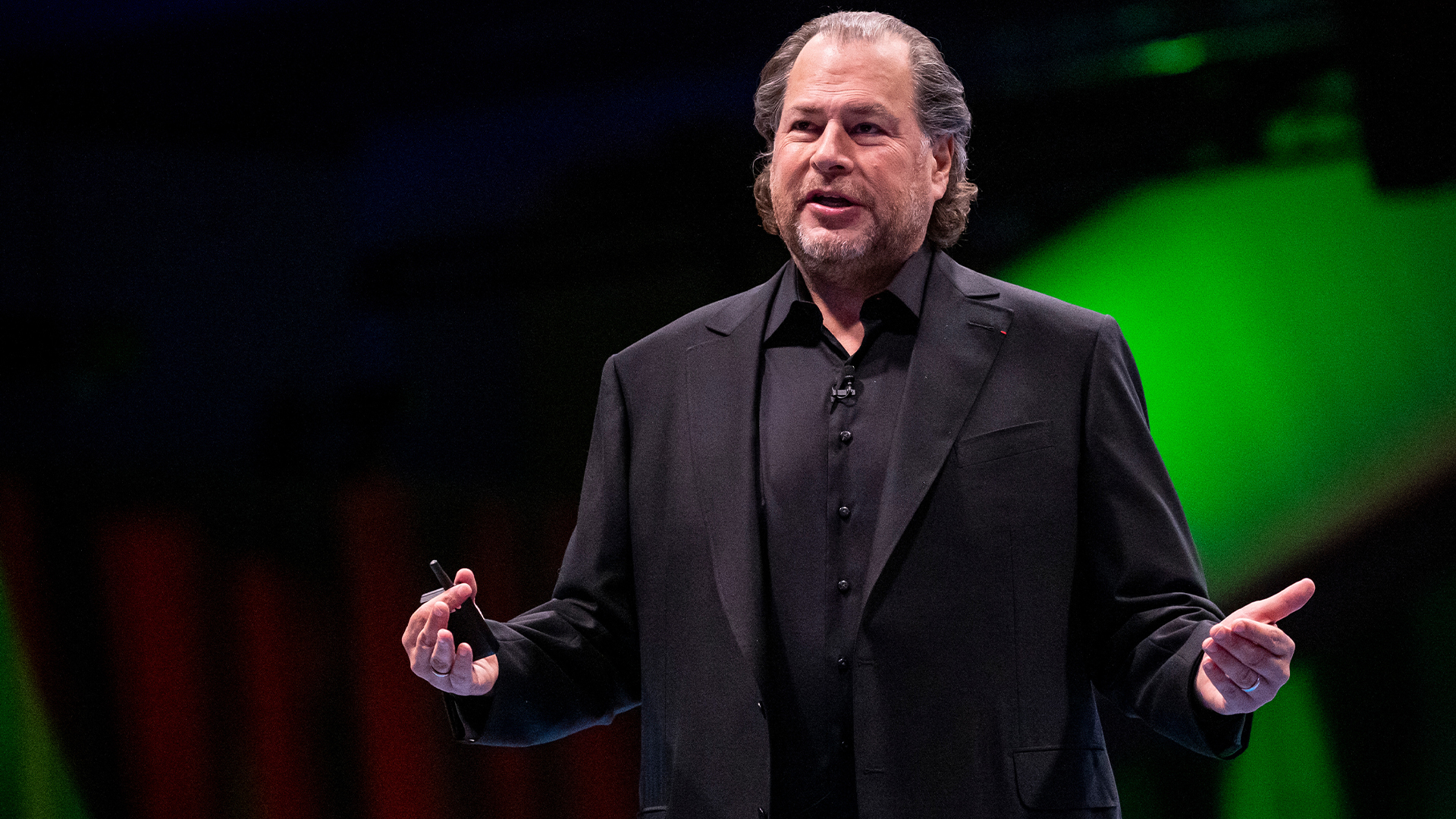 ‘You can see the horrible things that Microsoft did to Slack before we bought it’: Marc Benioff warns Microsoft could repeat 'pretty nasty’ Slack playbook with OpenAI amid frayed relationship
‘You can see the horrible things that Microsoft did to Slack before we bought it’: Marc Benioff warns Microsoft could repeat 'pretty nasty’ Slack playbook with OpenAI amid frayed relationshipNews Salesforce CEO Marc Benioff has claimed Microsoft did "horrible things" to Slack prior to its acquisition - and warned the company could be set to repeat its playbook with OpenAI.
-
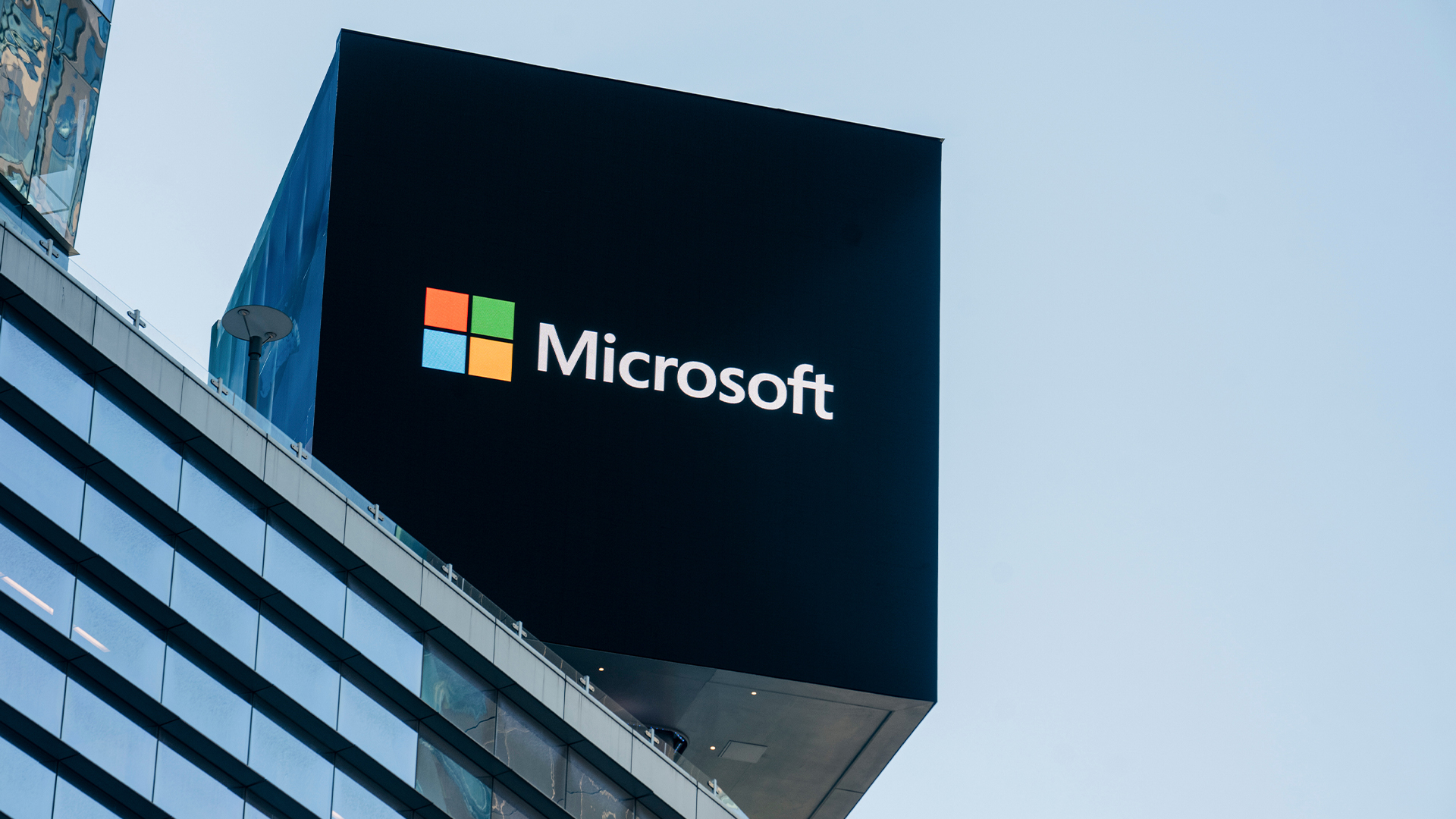 Microsoft just hit a major milestone in its ‘zero waste’ strategy
Microsoft just hit a major milestone in its ‘zero waste’ strategyNews Microsoft says it's outstripping its zero waste targets, recording a 90.9% reuse and recycling rate for servers and components in 2024.
-
 CyberOne appoints Microsoft’s Tracey Pretorius to its advisory board
CyberOne appoints Microsoft’s Tracey Pretorius to its advisory boardNews The threat intelligence leader will provide strategic guidance to CyberOne’s executive team


